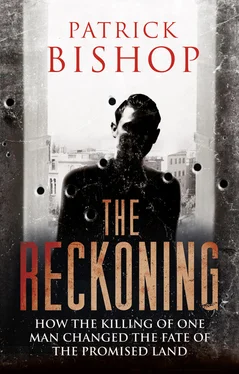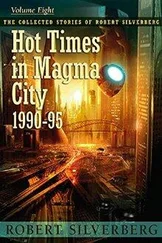These outrages dismayed Stern’s fellow Jews. The Jewish Agency, which spoke for most of them, led the outcry, offering its wholehearted support ‘in order to track down the murderous gang and free Palestine … from the nightmare of hold-ups and assassinations’. The words invoked images of Prohibition-era Chicago and were chosen carefully to puncture Stern’s grandiose self-image. In his short life he had morphed from promising scholar and poet to aspiring Zionist theorist to underground fighter. Now he seemed to think of himself as a warrior prophet, taking the name ‘Yair’ in homage to the leader of the Zealots who killed each other rather than surrender to the Romans. In the course of the journey he had formed an unshakeable conviction – that Britain was the main enemy of the Jews and the chief obstacle to the creation of a new Israel. The outbreak of the war had done nothing to change his mind. When his former comrades in the underground went off to fight alongside the British, Stern tried to undermine them by allying himself with their enemies, seeking deals with Fascist Italy and Nazi Germany.
His ambitions challenged not just Britain but the Zionist establishment and together, it seemed, they had defeated him. His organization was in ruins. Men he had regarded as brothers had given themselves up and the rest had been arrested or had gone to ground.
They finished breakfast, and Tova cleared away the plates. Stern sat down again at the small table and began writing, as he did most mornings, filling long strips of paper in neat, scholarly script. He had been writing poems to pass the long hours. One verse, at once self-pitying and defiant, read:
Mad pouring rain
And ardent bitter cold
Where to rest my tired head?
Where to hide my shivering flesh?
He sat hunched at the table, thin, dark and lonely. The pen scratched over the paper. All he could do was wait.
Three miles away, on the north-east outskirts of Tel Aviv, Assistant Superintendent Geoffrey Morton of the Palestine Police was setting off to work. He lived in Sarona, a cluster of attractive stone villas and bungalows on the edge of the city. He walked down the pathway to the waiting car, dressed in plainclothes detective’s civvies: tweed jacket, grey flannels and trilby. His wife, Alice, a strong, intelligent woman, who taught at the Jaffa High School for Girls, was at his side.
Morton and Stern were almost exactly the same age. Physically they could hardly have been more different. Morton was over six feet tall, slim and well muscled with big, size-ten policeman’s feet. He had blondish hair with a long face and a cleft chin that hinted at stubbornness. His eyes sloped down at the corners, giving him a slightly melancholy air. They were, however, quick to light up. He looked upon the complicated scene around him with dry amusement and the almost equine face split frequently into a grin. Stern and he nonetheless had things in common: they were both ruthless, ambitious and utterly convinced of their own righteousness.
The saloon carrying the Mortons hummed southwards along the highway on the six- or seven-minute journey. To the left stretched a landscape of palm trees and low stone houses, through which camels and donkeys and Arab men and women in long, loose clothing made their unhurried way. To the right gleamed the white Bauhaus-style apartment houses and office blocks of Jewish Tel Aviv, a brand-new city, whose streets and boulevards were already choked with traffic.
Morton’s reputation at that time was at its peak. He was intelligent, hard-working, famously brave, and to all appearances heading for the top. Since late 1939 he had commanded the Tel Aviv area Criminal Investigation Department, charged with countering Jewish and Arab political violence. With the start of the war, this work had taken on great importance. Britain was on the defensive everywhere and in the eastern Mediterranean the situation was getting worse. In Egypt, a hundred miles to the south, British forces were bracing for a renewed assault from the west by Rommel and the Afrika Korps.
Morton believed he was only a few steps away from removing one cause of concern. The Stern group’s rampage was an affront to law and order in Palestine. If it managed to get backing from the Nazis it might develop into a more serious threat – a fifth column operating in the rear of British forces as they prepared for the next German advance.
Thanks to Morton, though, the group was on its knees. Sixteen days earlier, he had led a raid on a flat in central Tel Aviv where some of Stern’s most dedicated followers were holed up. He had burst through the door and shot down three of them, including Tova Svorai’s husband, Moshe. The raid had convinced some of the group to surrender and others had been rounded up. Without Stern, however, Morton’s victory could not be complete. But where was he?
The big saloon stopped outside police headquarters, a bleak three-storey concrete block on the main road between Arab Jaffa and Tel Aviv. The couple got out and Alice set off for the high school, to give her first lesson of the day. Morton headed for his office, to await what he hoped was vital information.
The big prize was within his grasp. Some days before he had laid a trap which, if it came off, would complete the destruction of the Stern Gang. Two of the men he had shot in the raid had since died. The survivors, Moshe Svorai and the group’s master bomb-maker Yaacov Levstein, were recovering in the detention ward of the Government Hospital in Jaffa. They were in the charge of Sergeant Arthur Daly, an Irishman who spoke good Hebrew. Soon after the prisoners arrived, Daly had come to Morton with a plan. He proposed offering to act as a go-between with the detainees and their families. He had succeeded in winning Levstein’s confidence and had been running messages to his mother. Disappointingly, the letters revealed nothing. But now Svorai had decided to make use of the sergeant’s services. Might he perhaps provide a clue that would lead to the leader of the gang?
Morton had barely had time to settle behind his desk when the news he was awaiting came through. Shortly after ten o’clock his car pulled up outside 8 Mizrachi Bet Street. His big feet clattered up the fifty-nine steps to the door of the rooftop apartment. The details of what happened next would be endlessly contested. There were, though, two undeniable facts. Minutes after Geoffrey Morton entered the flat, Avraham Stern was dead and Morton had shot him.
At the time, the exact circumstances of the shooting scarcely seemed to matter. For the British, a dangerous enemy had been taken out of the game and a difficult case was closed. For the Jews, a gangster whose activities had brought shame on the community had been eliminated. Morton and his men were deluged with praise. But what seemed like an end was only a beginning. In death, Stern would prove far more menacing than he had ever been in life. The shots Morton fired would echo down the remaining years of British rule in Palestine and reverberate through the titanic events that shaped the birth of Israel. If you listen carefully, you can still hear them today.
*The equivalent of a thousand pounds sterling and a very substantial sum.
ONE
‘There Are Few Who Do Good and Many That Do Evil’
On the morning of 3 March 1938, a slim figure dressed in the blue and silver frock coat and white-plumed cocked hat of a Governor General of the British Colonial Service stood on the deck of HMS Endurance looking east towards the fast-approaching shore of the Holy Land. Haifa harbour had been dressed up for the occasion. Union Flags and bunting fluttered from ships and buildings. Chiaroscuro light effects added to the drama as the sun made intermittent appearances, darting in and out from behind the dark rainclouds stacked up over Mount Carmel.
Читать дальше












